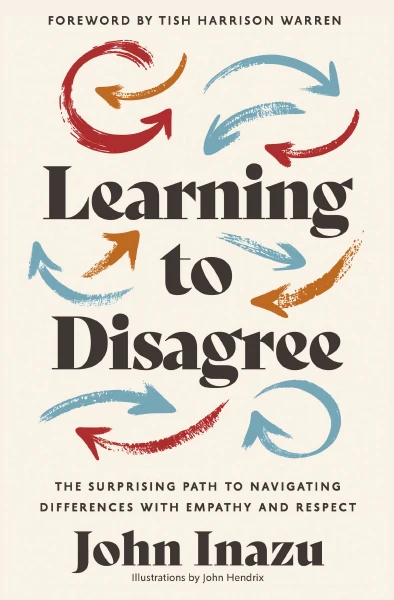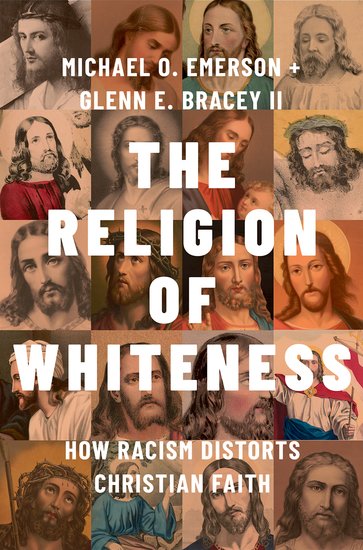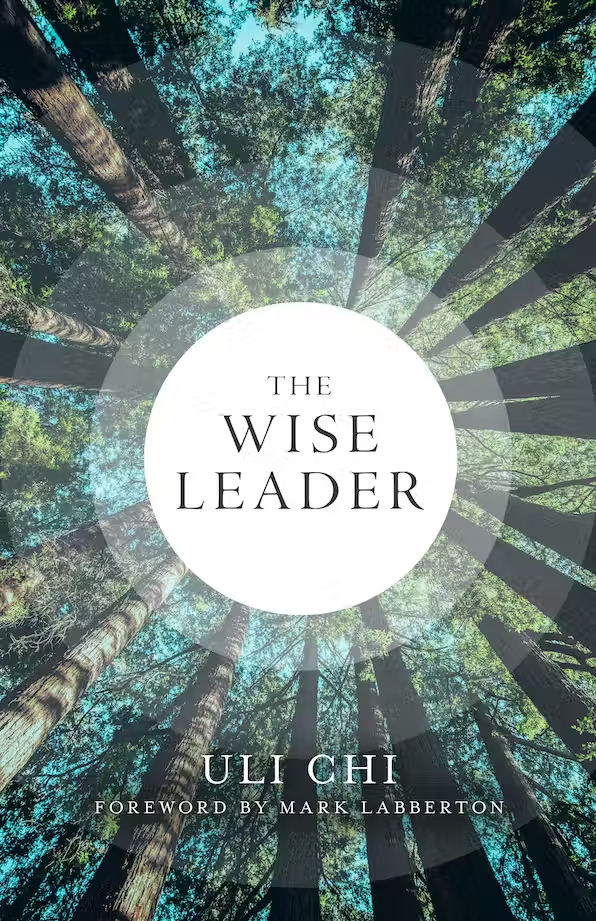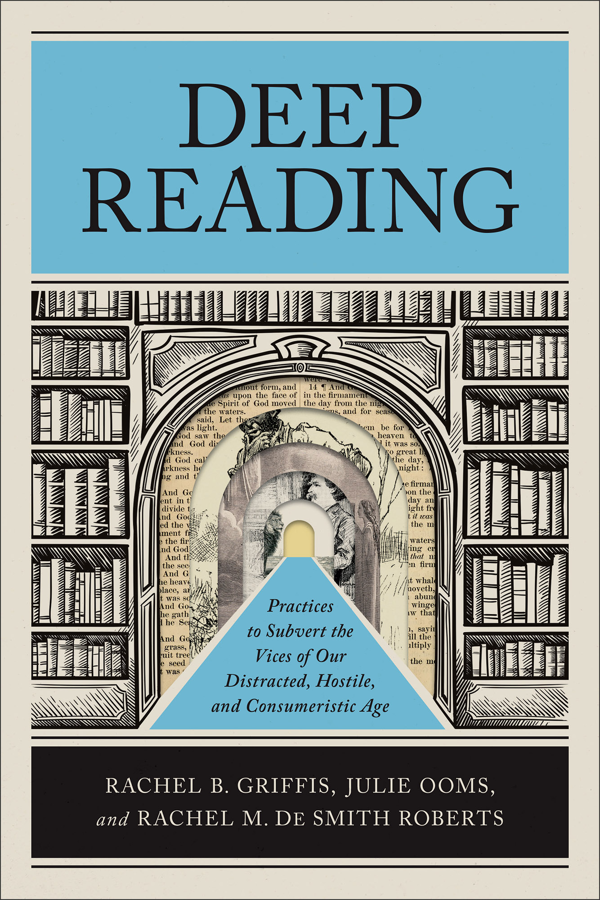Books | Music | Movies | Work | Politics | Church | Sports
Welcome to the year 2024. You know, the next 12 months will throw a lot at us. That’s exactly why we made this guide. Here’s a quick tour to books, music, politics, and all the other spaces you’ll live in the next 12 months.
[BOOKS]
10 Books to Read in ’24
Despite a stagnant reading market and a declining American readership, we by all measures publish an unreadable number of books — annually, somewhere between 500,000 and 1 million traditionally, plus another 2 million self-published titles. Average readers will read less than 1,000 books in their lifetimes. How do you know what books to pick up? It won’t be easy this year, so we built this surely incomplete, maybe a bit controversial, bound-to-change list to help. Yes, we left off some headline-grabbers such as Matt Haig’s new novel (out in September) and Salman Rushdie’s account of his being nearly stabbed to death last August (out in April), but when the time comes, the algorithm won’t let you miss those. For everything else, here’s this.
 Reading Genesis
Reading Genesis
by Marilynne Robinson
(Farrar, Straus and Giroux) Out March 12
You could make a case that she is the living American writer, the novelist of at least one Great American Novel in Gilead (2004). As the every award-winning Presbyterian novelist, essayist, and teacher, Marilynne Robinson turns out a monograph about the Bible’s most interesting, strange, and debated text, you can be sure it’ll be worth a read.
 The Cemetery of Untold Stories: A Novel
The Cemetery of Untold Stories: A Novel
by Julia Alvarez
(Algonquin Books) Out April 2
In this novel, the main character buries incomplete book manuscripts in a plot of land (in the Dominican Republic) in an attempt at closure for unfinished work. That’s not what immediately happens. As one of the most celebrated poets and storytellers alive, Julia Alvarez’s work demands attention — and often rewards it.
 Learning to Disagree: The Surprising Path to Navigating Differences with Empathy and Respect
Learning to Disagree: The Surprising Path to Navigating Differences with Empathy and Respect
by John Inazu
(Zondervan) Out April 2
Listen in on conversations around Common Good and Made to Flourish, and you’ll hear a wealth of respect for the work of attorney and churchman John Inazu. His wisdom applied to one of the most — the most? — pressing social problems of the last decade will no doubt make for essential reading for you and everyone you know.
 Bonhoeffer for the Church: An Introduction
Bonhoeffer for the Church: An Introduction
by Matthew D. Kirkpatrick
(Fortress Press) Out April 9
You hear a lot about Dietrich Bonhoeffer, and millions of Christians globally know his classic book Life Together. Still much of his writing seems stuck among the academic class. This book looks to give a comprehensive introduction — and it is definitely a tome — to Bonhoeffer’s writing for normal church people.
 I Cannot Control Everything Forever: A Memoir of Motherhood, Science, and Art
I Cannot Control Everything Forever: A Memoir of Motherhood, Science, and Art
by Emily C. Bloom
(St. Martin’s Press) Out April 16
Maybe nothing brings our data-obsessed, tech-forward world into relief with visceral, human reality like motherhood. To read Emily C. Bloom’s account, the effect leaves parenthood not eased but all the more jarring. Bloom’s literary memoir forms an attempt to bring these often-conflicting factions into a whole life.
 The Old Testament as Literature: Foundations for Christian Interpretation
The Old Testament as Literature: Foundations for Christian Interpretation
by Tremper Longman III
(Baker Academic) Out April 23
As we’ve suggested in these pages before, the prolific Tremper Longman III is basically everyone’s Old Testament professor. He’s dedicated his life not only to helping Christians understand the first testament, but to enjoy it. This book will take more steps toward both.
 The Religion of Whiteness: How Racism Distorts Christian Faith
The Religion of Whiteness: How Racism Distorts Christian Faith
by Michael O. Emerson, Glenn E. Bracey II
(Oxford University Press) Out April 30
Few books proved as prescient as Michael O. Emerson’s 2001 sociological deep-dive, Divided by Faith, written with Christian Smith. Now, again using national surveys and extensive interviews, he’s co-authored what promises to be an indispensable catalog of the ways race shapes (and reshapes) American Christianity.
 The Wise Leader
The Wise Leader
by Uli Chi
(Eerdmans) Out May 7
As another figure who generates sage-level respect from our team, Uli Chi’s leadership, teaching, and philosophy deserves wide attention. Here, Chi builds a framework from Scripture (as well as art and literature) for the character formation of leaders — which is something we need desperately.
 Deep Reading: Practices to Subvert the Vices of Our Distracted, Hostile, and Consumeristic Age
Deep Reading: Practices to Subvert the Vices of Our Distracted, Hostile, and Consumeristic Age
by Rachel B. Griffis, Julie Ooms, Rachel M. De Smith Robert
(Baker Academic) Out May 28
A whirling number of articles and books tell us that as a society we’re hectic, distracted, and growing more so. What we don’t often get are solutions that amount to more than work-life tips. Enter this multi-contributor book that makes a case for and gives models to a contemplative, conversive, community-based response to the blurry notification life.
 The Slow Road North: How I Found Peace in an Improbable Country
The Slow Road North: How I Found Peace in an Improbable Country
by Rosie Schaap
(Mariner Books) Out August 20
If you don’t know, Rosie Schaap is one of the most celebrated food writers in America. Well, kind of in America. After her mom and husband died just a year apart, she found a place to belong again in Glenarm, Northern Ireland. The Slow Road North gives an account of how she came there and of the healing powers of particular places and people.
[MUSIC]
The Artist Drew Holcomb Is Most Excited About in ’24
Okay, we like music. But we maybe don’t know enough to guide you into the next calendar. Thankfully, singer-songwriter Drew Holcomb does. So we asked him.
Common Good: In 2024, what music (artist or album) are you looking forward to?
Drew Holcomb: I really love this record Son of Dad by Stephen Wilson Jr. It just came out and I am going to see him in early 2024.
CG: Go on …
DH: His record is a juggernaut of lyrical and musical maturity. It has been five to six years since I have been so completely undone by a new album. The songwriting is Steinbeck and Conroy and Faulkner while the music has a sonic fingerprint unlike anything I have ever heard, Wilson plays the nylon string guitar as the second centerpiece behind his voice, and every song has a bed of strings that elevates the emotional layering of the storytelling.
CG: What will you be working on in 2024?
DH: A lot! Most importantly we are working on an extended version of Strangers No More. We released 11 songs but we recorded over 20, and it’s time for the rest of them to see the light of day. We are also working on a solo acoustic version of Strangers No More. Writing and recording a couple new songs with my wife as well. Lots of new music in 2024 for us.
If you don’t know: Drew Holcomb is a singer-songwriter and entrepreneur. He and his band, Drew Holcomb and the Neighbors, have spent the last 15 years touring the United States and Europe. He is also the founder of the Moon River Music Festival in Chattanooga and the Magnolia Record Club. Holcomb is married to fellow touring artist and children’s book author, Ellie Holcomb.
[WORK]
5 Work and Economic Predictions that Will Shape 2024
You know, as much as we’d like to just list these a year from now, these will look so good or so bad. Here goes.
Prediction 1
Hybrid officing will become the new normal — and it will further reconcentrate workers.
Why? Because by the end of November 2023, according to survey data from Axios Markets, the number of Americans who work “primarily” from home is down to around 25 percent, a post-pandemic low, while “hybrid arrangement” — two or three days in the office; two or three days at home — became more common. For now, it seems to balance the benefits of both in-office and from-home models. In 2024, we predict this trend will accelerate, which, by implication, recenter workers’ lives around specific cities.
Prediction 2
The kids will (start to) buy houses.
Why? Because the Fed has already suggested it will begin lowering interest rates, and because experts expect housing prices to drop by about five percent. Combine that with the more than four percent increase in wages we’ve seen in 2023, and the market should be more conducive for first-time buyers.
Prediction 3
The workers movement will continue.
Why? Because the uptick in strikes and labor disputes that defined much of 2023 appear more organized, practical, and generational than the vague angst that shaped the Occupy movement. Plus marquee victories in Hollywood and for UAW seem to set the stage for more efforts.
Prediction 4
Big educational credentialing questions won’t change anything.
Why? Because despite a lot of talk, no meaningful solution exists. Around the country, different groups (for different reasons) all bemoan the dominance of prestigious college degrees as a requisite for hiring, especially when those credentials don’t necessarily ensure a superior worker. That frustration intensified in 2023, as legacy admissions processes, alleged overemphasis on DEI curricula, and the more recent anti-semitism scandals caused many to question the educational substance of these schools. But remember the 2009 story of late SCOTUS Justice Atonin Scalia’s admitting that, though the Ivys may not teach any better than “second-tier” schools, he’d continue to hire clerks from Harvard, Yale, and the lot.
Prediction 5
Marketers will use the term “AI” in at least 90 percent of TV commercials.
Why? We don’t know why they’re doing it, but they will.
[MOVIES]
At the Movies This Year, Get Ready for Stuff You’ve Kind of Already Seen
Our big derivative summer. New takes or add-ons to Twister (Twisters) and Mean Girls and Mad Max (Furiosa: A Mad Max Saga). Inside Out. Wicked. Alien (Alien: Romulus). Beetlejuice. Even average movies are getting expanded, like A Quiet Place (A Quiet Place: Day One) and Joker (Joker: Folie à Deux).
What you thought you might see this year has probably changed. Though the WGA and SAG-AFTRA strikes have ended, the delays in production have upended the release calendar. Originally slated for a 2024 release, you’ll have to wait on these: Dirty Dancing, Blade, Avatar 3, Mission: Impossible — Dead Reckoning Part Two, Spider-Man 4, and more.
[POLITICS]
This Year, We Elect the President of United States
It’s Joe Biden (maybe) vs. Somebody (likely Donald Trump). It’s happening. And it will no doubt demand all of our attention.
Key Dates
- January 15: Iowa Republican presidential caucuses
- January 23: New Hampshire presidential primary
- February 3: South Carolina Democrat presidential primary
- February 6: Nevada (non-binding) presidential primary
- February 24: South Carolina Republican presidential primary
- February 27: Michigan presidential primary
- March 2–4: Caucuses in Idaho and Missouri (March 2), Washington D.C. primary (March 3), and North Dakota caucuses (March 4)
- March 5: Super Tuesday. Presidential primaries in Alaska, Alabama, Arkansas, California, Colorado, Maine, Massachusetts, Minnesota, North Carolina, Oklahoma, Tennessee, Texas, Utah, and Vermont
- March 19: Presidential primaries Arizona, Florida, Illinois, Kansas, and Ohio
- April 2: New York Presidential primaries
- July 15–18: Republican National Convention in Milwaukee
- August 19–22: Democratic National Convention in Chicago
- October 1, 9: Debates between the Democratic and Republican presidential nominees. (Note that this may not happen: Republican officials have expressed a desire to keep their nominee from participating in events put on by the Commission on Presidential Debates.)
- November 5: Election Day
- December 17: Electoral College meets to submit all 538 votes for president
Michael Wear on 3 Steps to Shape Our Politics
Another presidential election year, another billion dollars (plus!) spent to influence the candidates and the citizens who will choose among them. Of course, while politics is, at its core, about self-governance, our politics is about so much more. Our political culture is one charged with the emotions, resentments, and aspirations of life. For some, politics is entertainment, and our politicians and political institutions too often treat it as such. Many people go to politics to get their spiritual and emotional needs met. Because of this, in part, politics is able to cause great spiritual harm.
If politics was, at its core, about entertainment, we could ignore it, and we would be better off for it. However, politics — and the 2024 presidential election, believe it or not — is not about entertainment. Because politics is how we make crucial decisions about how we will live together — what laws we will have, how resources will be allocated, who will represent us as political decision makers — it is an essential forum in which we can seek to love our neighbors.
Christians do not go to politics to get their spiritual and emotional needs met. We do not, ought not, go to politics as a source of frivolous entertainment. Christians, who get their spiritual needs met elsewhere, go to politics to advance justice and affirm human dignity.
This can be easier to see at the local level. Though this is changing, as some of the most toxic aspects of our national political culture trickle down to our local communities and governments, our local politics does not suffer from the self-aggrandizing antagonisms and frivolity of our national politics to the same extent. Thousands of elected offices will be voted on in November 2024, and your vote matters more the more local the race.
As individuals and members of families, churches, and communities, here are a few steps you can take in 2024 to shape our politics, and to be intentional about the ways in which you are allowing politics to shape you:
Participate — really. Political scientist Eitan Hersh introduced the term “political hobbyist” as a “catchall term for the person who spends a lot of time consuming news or signing online petitions or engaging online with people about this or that issue. They mistake this for actual politics.” Don’t be a hobbyist. Don’t spend all of your time talking about politics without doing politics. Attend campaign events. Volunteer. Invest your resources with civic organizations that you support. Run for office yourself.
Reject Partisan Caricatures. Learn, and be able to articulate, the best reasons why others, especially other Christians, will vote for the main alternative to the candidate you support. In the presidential election, for instance, likely about half of voters will cast their ballot for the candidate you oppose. Make an effort to understand the positive reasons why they are doing so. Not only will this help you put partisan differences in their proper place, it will help you value those you disagree with politically. You might even have greater success in helping those you disagree with understand your perspective if you can show that you understand theirs.
Pray. There has been some really unfortunate rhetoric lately downplaying the place of prayer in politics, but Christians should never pit prayer against “real action.” Pray, earnestly, for those in elected office, those seeking it, and for the voters, who all hold a vital office themselves: citizen.
And not let our politics shape us.
Michael Wear is the founder, president, and CEO of the Center for Christianity and Public Life. He is the author of the forthcoming book, The Spirit of Our Politics: Spiritual Formation and the Renovation of Public Life, which will be released on January 23, 2024.
[CHURCH]
The Shape of the Christian Year, 2024
The formal liturgical traditions among us have been on this one. Increasingly, evangelical churches embrace elements of the church calendar. Even if your church doesn’t organize practices around these events, the dates can give a churchly focus to your year, allowing you to set your calendar on things above.
- Ash Wednesday
February 14 - Easter Sunday
March 31 - The Ascension of the Lord
May 9 - Pentecost Sunday
May 19 - Trinity Sunday
May 26 - First Sunday of Advent
December 1
[SPORTS]
All Eyes on Paris
Sure, this year we’ll get the usual Super Bowl (February 11), March Madness (March 19-April 8), NBA Finals (June 6), and World Series (October). But 2024 will be one of those special sports years with the quadrennial Olympic games in Paris (July 26-August 11).
That means one of the Western world’s most important cities will host something like 15 million visitors — along with another 2 billion watching on TV — who will spend an estimated $2.75 billion over the course of just a couple weeks.
Remember the Christian Legacy in Parisian Olympics?
One hundred years ago, runner, Sabbatarian, and eventual martyr Eric Liddell changed his event to align with his convictions — and set world records in the process.
If you haven’t seen the Oscar-winning biopic of the Scotsman Eric Liddell, 1981’s Chariots of Fire, here’s the gist: Heading into the 1924 Olympic games in Paris, Liddell’s main event, the 100-meter sprint, was to be run on a Sunday. Liddell refused to compete because he believed Christian duty required reserving Sunday for rest and devotion. Instead, he focused on the 400 meters, not his best race but one that would allow him to compete on a weekday. Why run at all? “God made me fast,” Liddell said. “And when I run, I feel his pleasure.” As the movies shows, he worked like a Rocky montage to improve his 400 times, and he went on in Paris to break the world record three times in two days’ worth of heats leading up to the final. And in the final, he not only won the gold medal, but he set a European record that stood for 12 years. Following the Olympics, he returned to China, where he was born into a missionary family, to continue the evangelistic work. He died in a Japanese internment camp in 1945.





